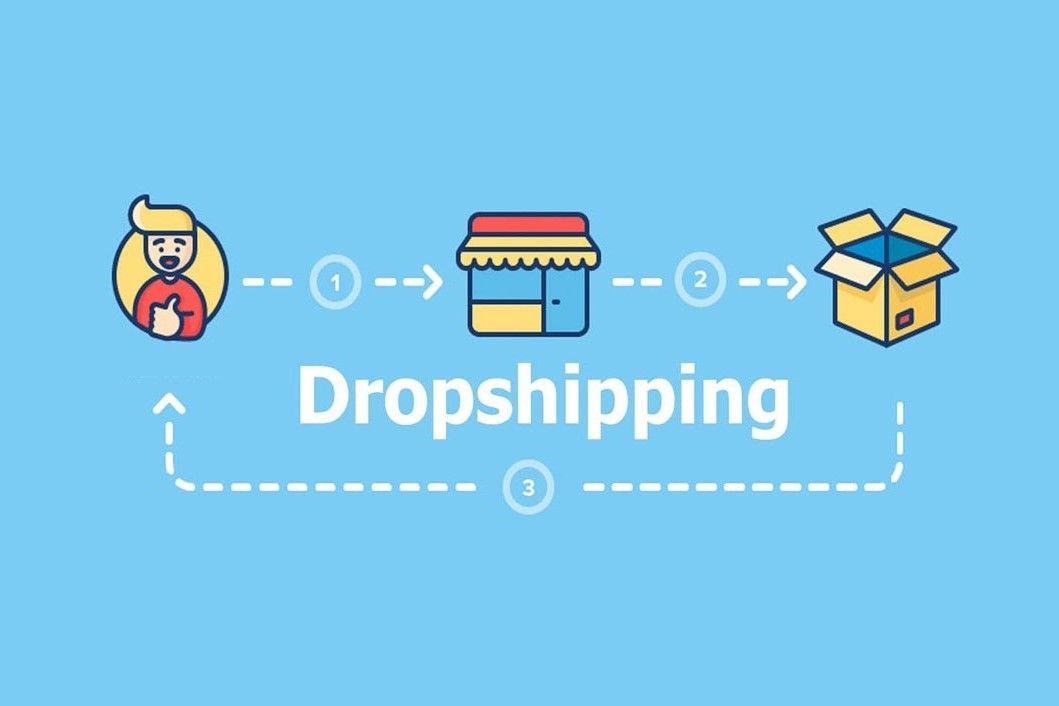17 / June / 2019 : 11-47
Dropshipping: The Basics

Dropshipping is a retail fulfillment method where a store does not keep the products it sells in stock. Instead, the store partners with a third-party supplier that holds the inventory and ships the products directly to the customer. This business model allows retailers to offer a wide range of products without having to invest in and manage a large inventory.
Advantages of dropshipping:
Low start-up costs: Dropshipping requires minimal upfront investment, as the retailer does not need to purchase inventory before they start selling. This makes it an attractive option for entrepreneurs and small business owners who are starting out.
No need for storage space: Since the retailer does not hold any inventory, they do not need to worry about storage space or the costs associated with it. This can be a major advantage for businesses operating from a small location or for those who do not have access to affordable storage solutions.
Flexibility: Dropshipping allows retailers to offer a wide range of products without having to hold large amounts of inventory. They can quickly and easily add new products to their online store without having to worry about the costs associated with purchasing and storing large quantities of stock.
Reduced risk: In traditional retail, a business may purchase large quantities of products that may not sell, resulting in a loss of money. In dropshipping, the retailer only purchases products that have already been sold, reducing the risk of unsold inventory.
Disadvantages of drophipping:
Lower profit margins: The retailer is required to pay the third-party supplier for the product, as well as any shipping costs. This can result in lower profit margins compared to traditional retail models.
Limited control over the shipping process: The retailer is relying on the third-party supplier to handle the shipping process, which can result in slower delivery times and potential quality issues with the products.
Dependence on the supplier: The retailer is dependent on the third-party supplier for the product, which can result in issues if the supplier experiences any problems or goes out of business.
In conclusion, dropshipping can be a valuable business model for retailers who are looking to start a business with limited upfront investment and low overhead costs. However, it is important to carefully consider the potential disadvantages, including lower profit margins and limited control over the shipping process, before starting a dropshipping business.

Published on 17 / June / 2019 : 11-47
Published by
Liana Aloyan
Journalist, columnist. Liana studies at the Faculty of Russian Philology of Khachatur Abovyan State University. She has been working at Yelaket (Yelaket.am) news agency since 2019 as a journalist and columnist. Writes articles about business and marketing. Liana is a member of "Media association" since 2020.
Viewed
163times
Recommended
21 / February / 2020
Where Do The Richest Americans Live?
Have you checked the newest "Forbes 400: The Full List of The Richest People in America" yet?
Surprise, Bill Gates, with a net worth of $81 billion, is ranked No. 1 for the 23rd year running....
17 / June / 2021
Gold loses its shine as Fed hints at rate hikes
The Federal Reserve surprised the market Wednesday with projections that future interest rate hikes will come a bit sooner than expected. Gold bugs in particular were disappointed.The price of gold...
17 / June / 2021
Jobless claims unexpectedly rose last week
Claims for unemployment benefits rose unexpectedly last week, marking the first increase in initial claims since late April.Another 412,000 workers filed for first-time benefits in the week ended...
16 / July / 2021
Abu Dhabi’s maritime sector strategy shifts to diversification, less reliance on oil
“No one is safe, unless everyone is safe” is the thinking behind herculean efforts to immunise the world against Covid-19.Abu Dhabi, capital of the United Arab Emirates (UAE) and a strategic hub...
15 / February / 2022
Ameriabank is the first in Armenia to place green bonds via public offering
Ameriabank announced today public placement of nominal, coupon, book-entry bonds with the total volume of USD 8 million and AMD 3 billion during the period from February 14 to April 22, 2022,...
22 / February / 2022
Ameriabank receives another IFC award in trade-finance sector
Ameriabank CJSC has been named the Best Issuing Bank in the Caucasus for 2021 by International Financial Corporation (IFC), a member of the World Bank Group, in the 10th annual award ceremony in...
02 / March / 2022
Global Finance Names Ameriabank “Best Investment Bank” in Armenia
Global Finance reputable magazine has published the list of winners of the World’s Best Investment Banks 2022 Award, naming Ameriabank the “Best Investment Bank in Armenia” for the seventh year in...
31 / March / 2022
Ameriabank’s ‘Live Armenian,’ ‘Live with a Smile,’ ‘Live Limitless’ promotional draws’ winners...
Ameriabank on Wednesday summed up the promotional draws “Live Armenian”, “Live with a Smile” and “Live Limitless” and announced the results.From December 9, 2021 to March 9, 2022, the Bank offered...









